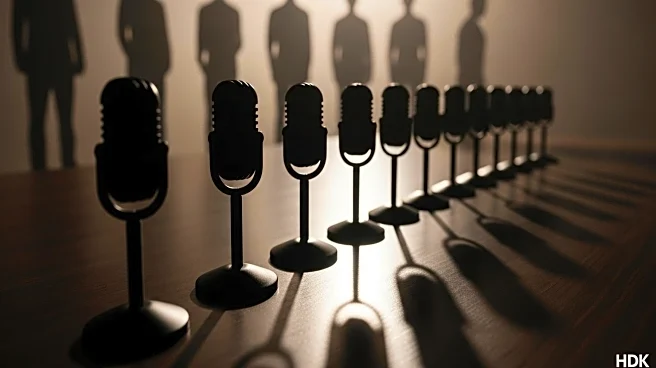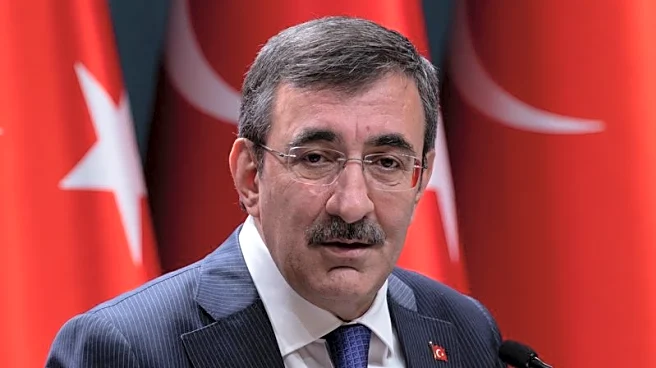What's Happening?
Over 400 entertainers, including prominent actors and musicians, have signed an open letter organized by the American Civil Liberties Union (ACLU) in response to ABC's suspension of Jimmy Kimmel's late-night show. The suspension followed pressure from the Trump Administration, which allegedly threatened ABC with retaliation. The letter criticizes this action as a threat to freedom of speech, highlighting the government's attempts to silence critics by targeting media figures. Signatories include Lin-Manuel Miranda, Pedro Pascal, Selena Gomez, and Olivia Rodrigo, among others. The controversy began after Kimmel criticized the conservative response to the assassination of activist Charlie Kirk. The FCC chairman, Brendan Carr, suggested that ABC take action against Kimmel, leading to the show's suspension. The ACLU's executive director, Anthony D. Romero, compared the situation to the McCarthy era, emphasizing the need for public mobilization against government censorship.
Why It's Important?
The suspension of Jimmy Kimmel's show under government pressure raises significant concerns about freedom of speech and media independence in the United States. This incident highlights the potential for government overreach in influencing private media companies, which could set a dangerous precedent for censorship. The involvement of high-profile entertainers and the ACLU underscores the widespread concern over the erosion of constitutional rights. The situation reflects broader tensions between the media and the government, particularly under the Trump Administration, and could impact public trust in media outlets and their ability to operate without political interference.
What's Next?
The ongoing debate over media freedom and government influence is likely to continue, with potential legal challenges and public protests. The ACLU and other civil rights organizations may increase their advocacy efforts to protect free speech. Media companies might face pressure to resist government interference, while political leaders could be called upon to address these concerns. The situation may also prompt discussions about the role of regulatory bodies like the FCC in media operations.
Beyond the Headlines
This incident could lead to a broader examination of the relationship between media companies and government entities, particularly regarding regulatory pressures. It may also spark discussions about the ethical responsibilities of media outlets in balancing government demands with journalistic integrity. The cultural impact of silencing entertainers and media figures could influence public discourse and artistic expression.











